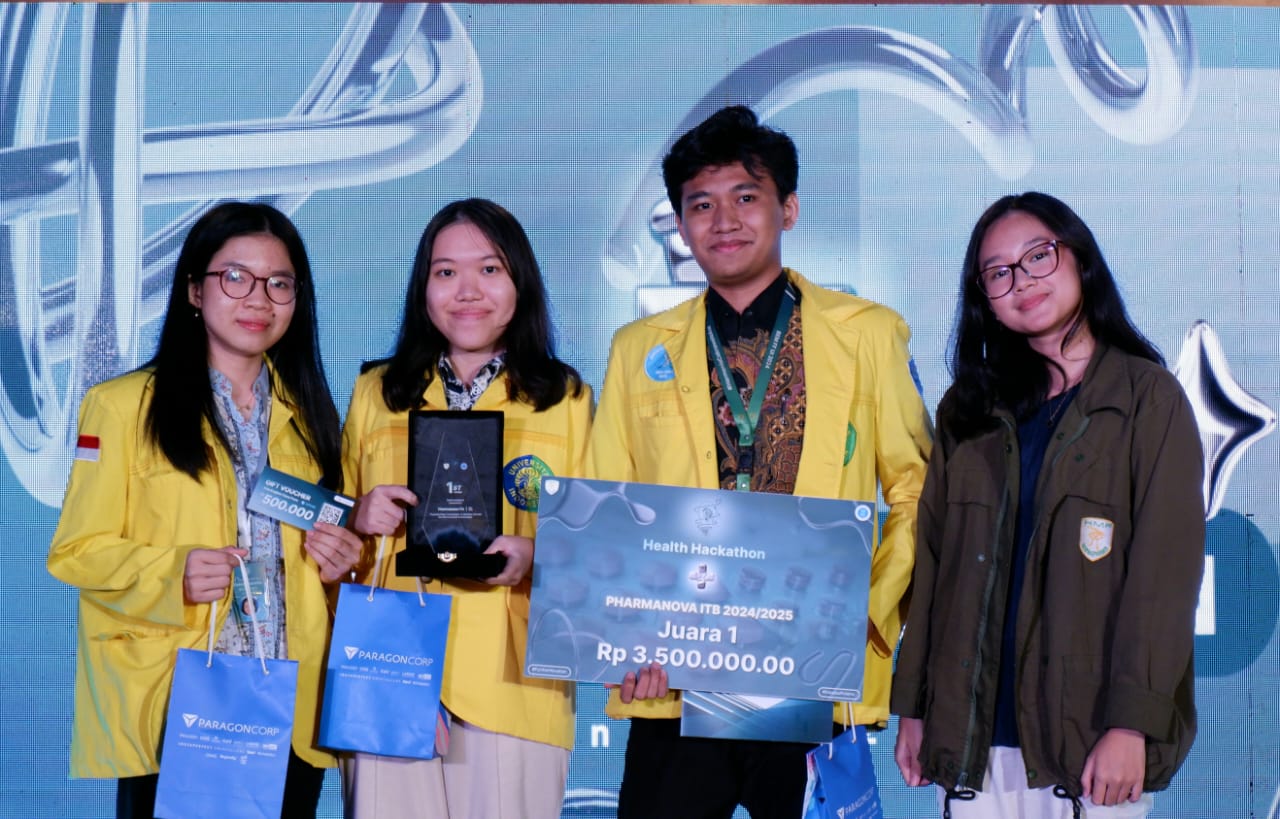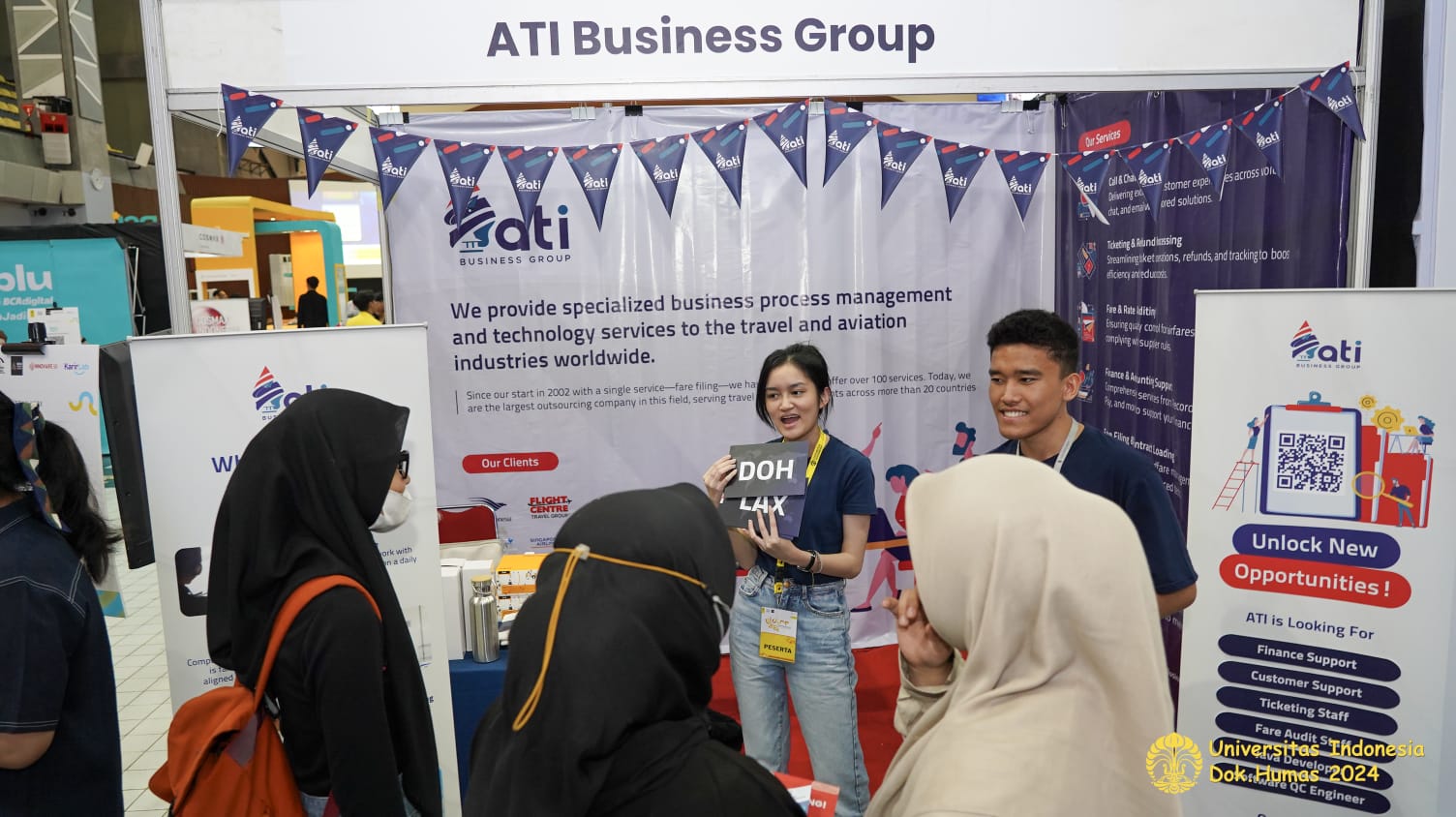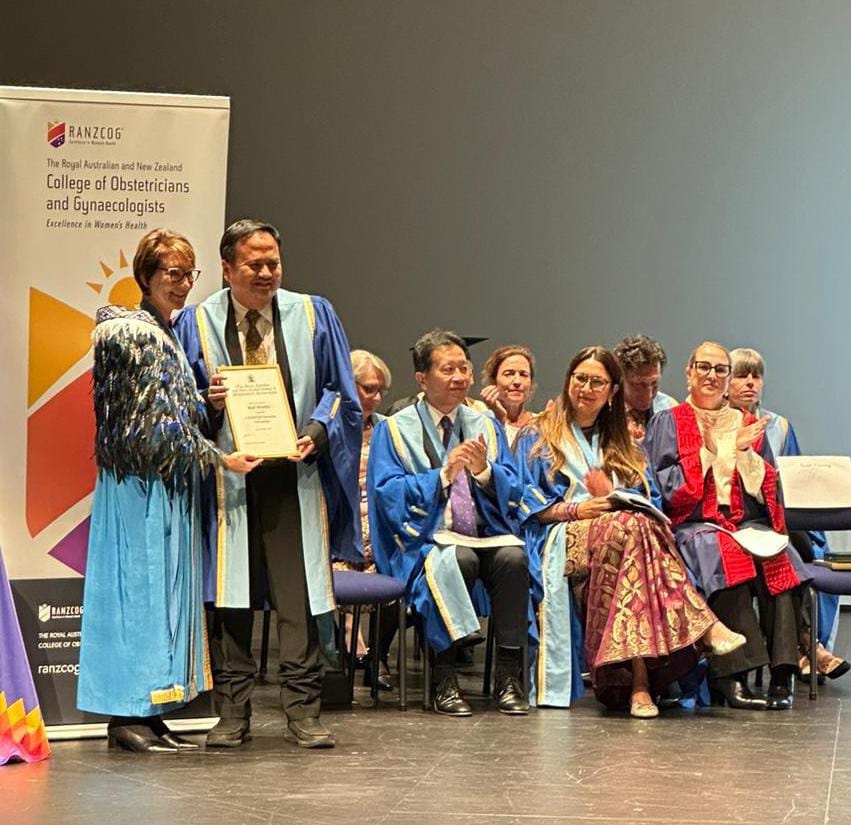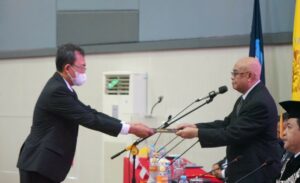
FIA UI DOCTOR ANALYZED THE PROBLEM OF FRAGMENTATION IN THE GOVERNANCE PROCESS OF THE INDONESIAN GOVERNMENT
The fragmentation of a governance process in producing a planning document and its adaptation to the complexity, diversity, and dynamics of society has been a problem faced by the Indonesian government even since the Reformation era. The problem of fragmentation has a significant impact. As a fact from National Development Planning Agency/Bappenas (2013), there is an average deviation of 29.4% between the Government Work Plans (RKP) and the Ministry/Agency Work Plans and Budgets (RKAKL). This deviation worsens the quality of planning and budgeting in regions.
Suhartono, S.IP., M.PP., a student of Public Administration Doctoral Program, Universitas Indonesia (FIA UI), mentioned the need for a review of the governance process of the planning and budgeting so that it can be reconstructed. This is because governance is considered failed if it is unable to resolve public issues that require government authorities, duties, and responsibilities.
With the concept of governance developed by Koiman (1993), Suhartono found that the factors causing fragmentation of governance planning and budgeting process stem from the different orientations between Law 17/2003 and Law 25/2004. Law 17/2003 is oriented towards reforming the state financial management in order to be disciplined against fiscal constraints and be able to strengthen financial control and accountability. Meanwhile, Law 25/2004 is oriented towards maintaining the continuity of development in the absence of the National Guidelines of State Policy (GBHN) in the amended constitution.
In addition, there are determinant factors of the separateness of the arrangements which include environmental, orientation, and process aspects. Of these three aspects, the environmental aspect in the form of institutional rivalry between Bappenas and the Ministry of Finance is more influencing for separation compared to the external influence of international institutions which encourages the integration of the two.
With regard to the executive-legislative and society interaction, the relationship between transparency and accountability only occurs in the context of the executive and legislation–but it still infrequently occurs in society. This results in the decline of community participation in the planning and budgeting process compared to the practice in some countries. This condition supports a distorted pattern of interaction with the public budget that should be allocated for services or products of public goods above the interests of groups or individuals involved in the policymaking.
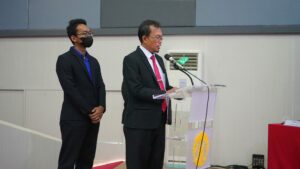
On this basis, Suhartono recommended fundamental integration of the planning and budgeting process by revising Law 17/2003 and 25/2004 into one law without enlivening GBHN in the constitution. This is done so that the planning and budgeting functions can be controlled by one institution in order to reduce deviations and distortions. A moderate alternative can be done by maintaining the status quo which is integrated with the Bappenas and Ministry of Finance information systems. The office of the presidential staff can also be employed to control deviations in order to support the duties and powers of the presidency.
Suhartono mentioned the need to improve the quality of transparency, accountability, and participation by transforming the presentation of budget planning information from line items to performance so that the discussion process is more accountable. Transparency should be encouraged as part of the strategy of public organizations so that programs and work plans receive public support. Meanwhile, strengthening budget literacy and support from the academic community for the functions of Non-Governmental Organizations (NGOs) are needed because NGOs can act as a driving force for public participation in budget issues.
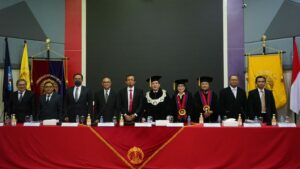
The dissertation entitled “Tata Kelola Proses Perencanaan dan Penganggaran di Pemerintah Pusat (2015–2017): Tinjauan Interaksi Aktor dan Lembaga” written by Dr. Suhartono, S.IP., M.PP., succeeded in making him the 25th graduate of FIA UI Doctoral Program and the 213th graduate as a Doctor in Administrative Science at Universitas Indonesia, on Thursday (5/1) at M Building, FIA UI. Research promoted by Dr. Roy Valiant Solomon, M.Soc.Sc. and co-promoter Dr. Umanto, M.Sc. was examined by dr. Machfud Sidik, M.Sc.; Dr. Purwanto, S.E., M.Sc.; Dr. Agung Firman Sampurna, S.E., M.A.P., CSFA .; Prof. Dr. Amy Yayuk Sri Rahayu, M.Sc.; Prof. Dr. Irfan Ridwan Maksum, M.Sc.; and Dr. Achmad Lutfi, M.Sc.
Author: Public Relations of FIA UI | Editor: Sasa

